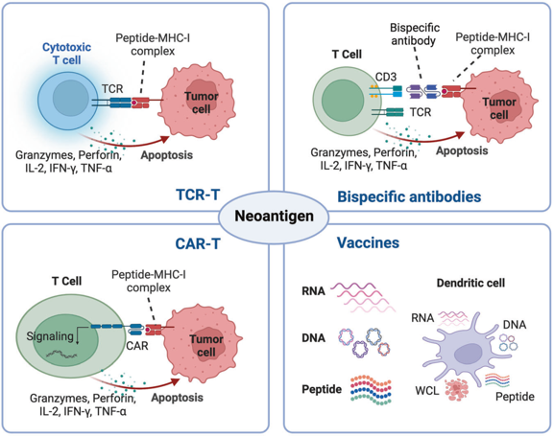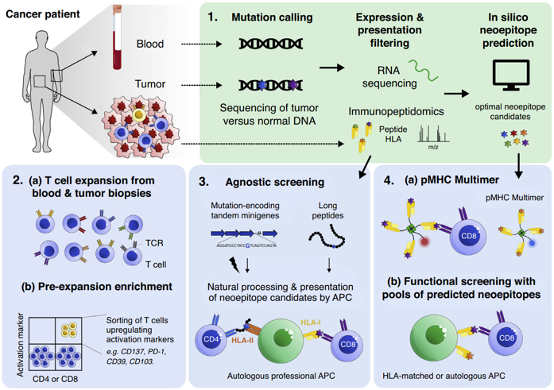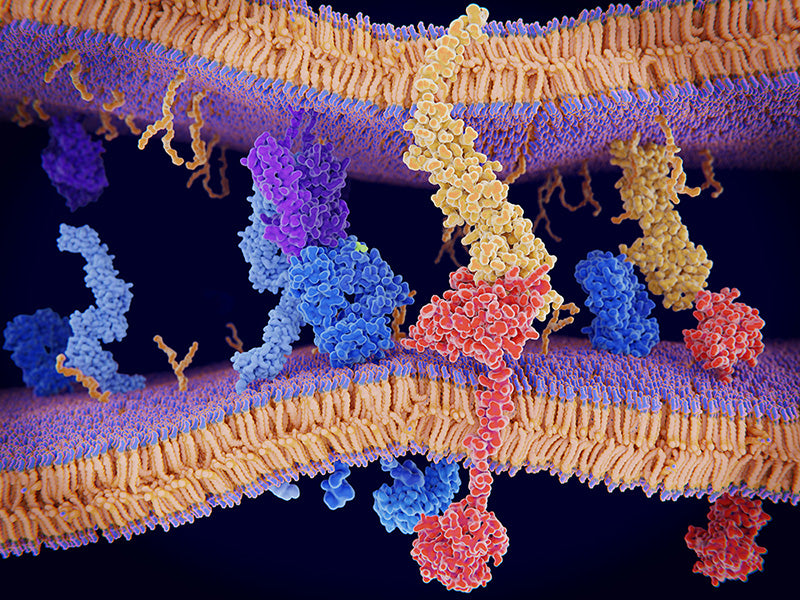A common strategy is to contact T cells with several antigenic peptides, which are determined by detecting functions such as T cell proliferation, specific killing ability, and factor release. The other is to identify antigen-reactive T cells by forming a complex polymer between MHC and the antigen peptide to be tested, and perform flow screening. These methods can not only determine the sequence information of antigenic peptides, but also identify specific T cells. A variety of new technology methods such as mass spectrometry, DNA barcode labeling and microfluidic analysis have greatly improved the detection throughput. Another is to screen the antigen peptide library through a specific TCR.
The bottleneck of neoantigen establishment is proper MHC presentation and effective TCR recognition, which is also one of the biggest challenges in the process of individualized immunotherapy. The reason is that the proportion of mutations that can cause immune effects is very small, and the authority of computer virtual screening itself is still inconclusive. Coupled with the limitation of HLA matching and the low affinity of MHC complexes to TCR, it significantly restricts the research of neoantigen-based immunotherapy. With the continuous improvement of the database and the refinement of different algorithm strategies, future neoantigen research will effectively combine computer-aided prediction and experimental verification, and gradually move closer to the high-throughput direction to achieve fast, accurate and efficient identification results.



